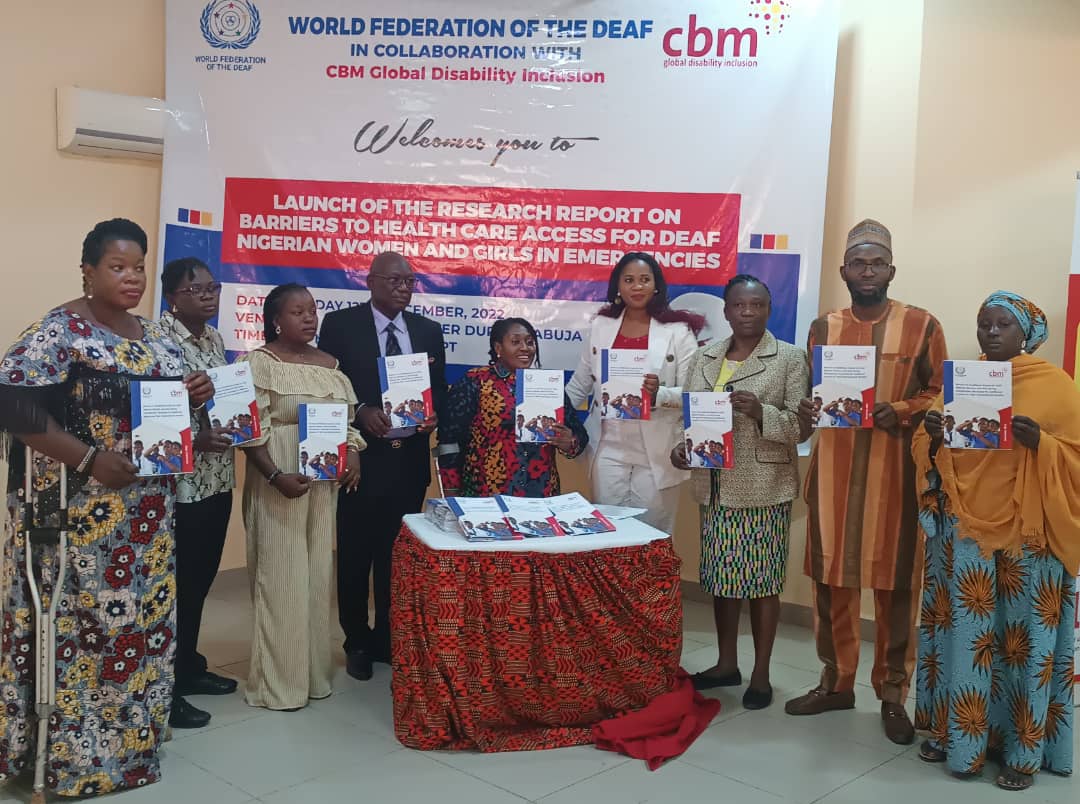Invest in deaf education to reduce healthcare access barriers, FG urged
The Healthcare Access Project Manager, World Federation of the Deaf (WFD), Dr Jolene Ogunjirin, has called on the Federal Government to invest in deaf education to reduce the barriers and burden deaf persons face while accessing healthcare. She made the appeal Monday in Abuja while speaking virtually at the unveiling of her Research Report on […]

The Healthcare Access Project Manager, World Federation of the Deaf (WFD), Dr Jolene Ogunjirin, has called on the Federal Government to invest in deaf education to reduce the barriers and burden deaf persons face while accessing healthcare.
She made the appeal Monday in Abuja while speaking virtually at the unveiling of her Research Report on ‘Barriers to Healthcare Access for Deaf Nigerian Women and Girls in Emergencies’, organised by WFD in collaboration with CBM Global Divisibility Inclusion.
According to Ogunjirin, deaf women and girls experience disparity in the quality of healthcare, reproductive health and resources due to inadequate education and sign language personnel.
“Based on the survey we collected and interviews conducted, we made some recommendations to decision makers and government authorities.
“The Nigerian government officials are required to recognise the Nigerian Sign Language (NSL) into law and include staff professional and accredited sign language interpreters in medical facilities,” she said.
Ekaete Umoh, Ms Country Director, CBM Global Disability Inclusion Nigeria, called on stakeholders to address the gaps deaf women and girls with disabilities face in accessing health care provision.
Umoh also called on all critical stakeholders to join in the implementation of the research recommendation.
“The World Federation of the Deaf (WFD) seeks to address the intersection of being deaf and being a woman when facing emergency and disaster situations and requesting healthcare services.
“This report presents preliminary research on the experiences faced in healthcare by deaf women and girls in Nigeria, highlighting the most recent emergency and disaster situation, the Covid-19 pandemic.
“In spite of the Nigeria ratification of the UN Convention on the Rights of Persons with Disabilities (CRPD), the Sendai Framework and their extant legal protocols which recognises full and equal access and participation in societies for persons with disabilities are still largely discriminated against.
“This in terms of access to information before and during emergencies,” she said.
Lawrence Idemudia, Acting Director of Social Integration, National Commission for Persons with Disability (NCPWD), promised to continue to partner with the organizations on issues of disability especially deaf women and girls.
Uche Andrew from Joint Association of Persons with Disability, appealed to relevant government authorities to make provision for sign language interpreters as well as adequate education for the deaf to enhance their inclusiveness in the areas of communication.
